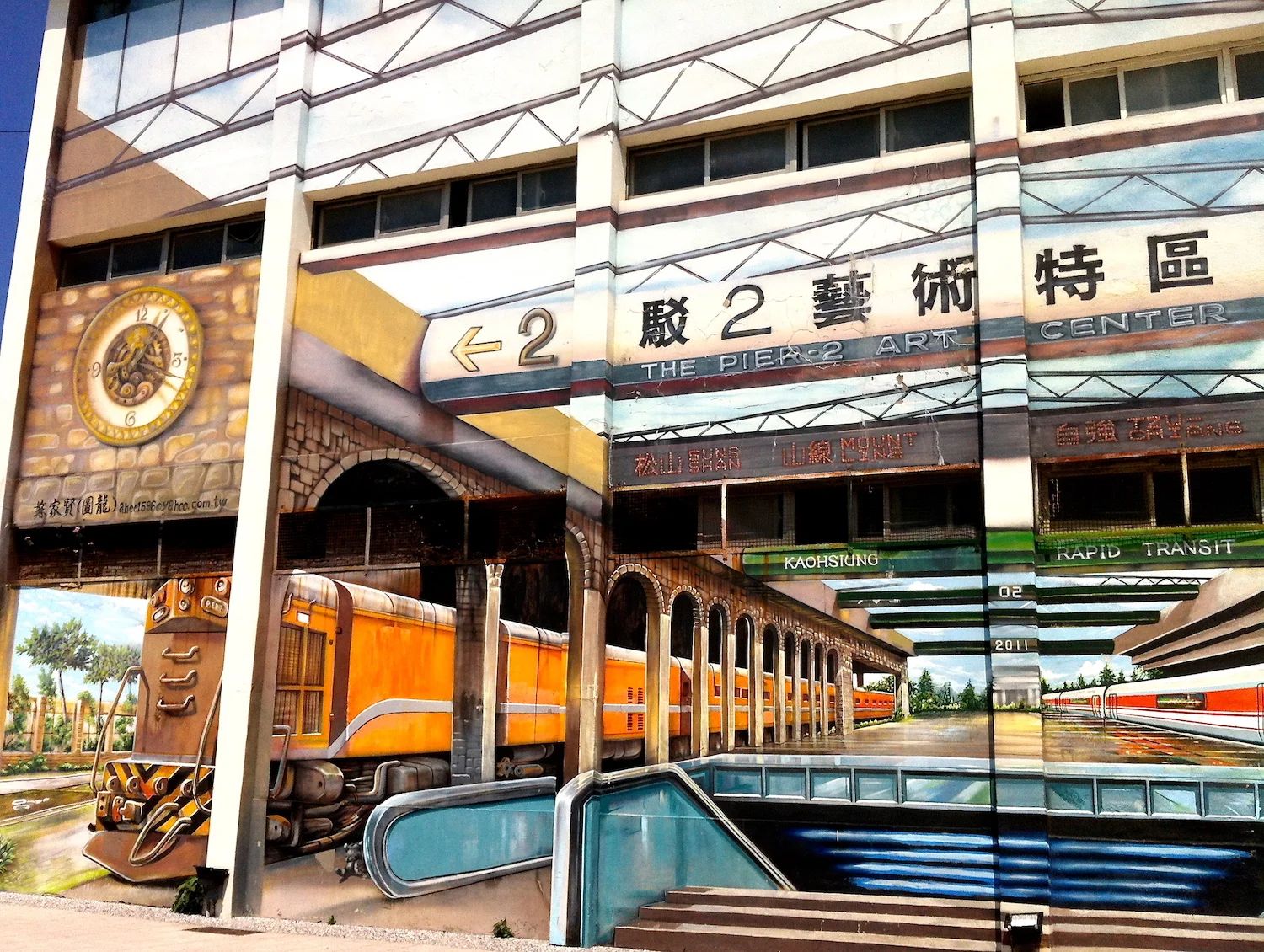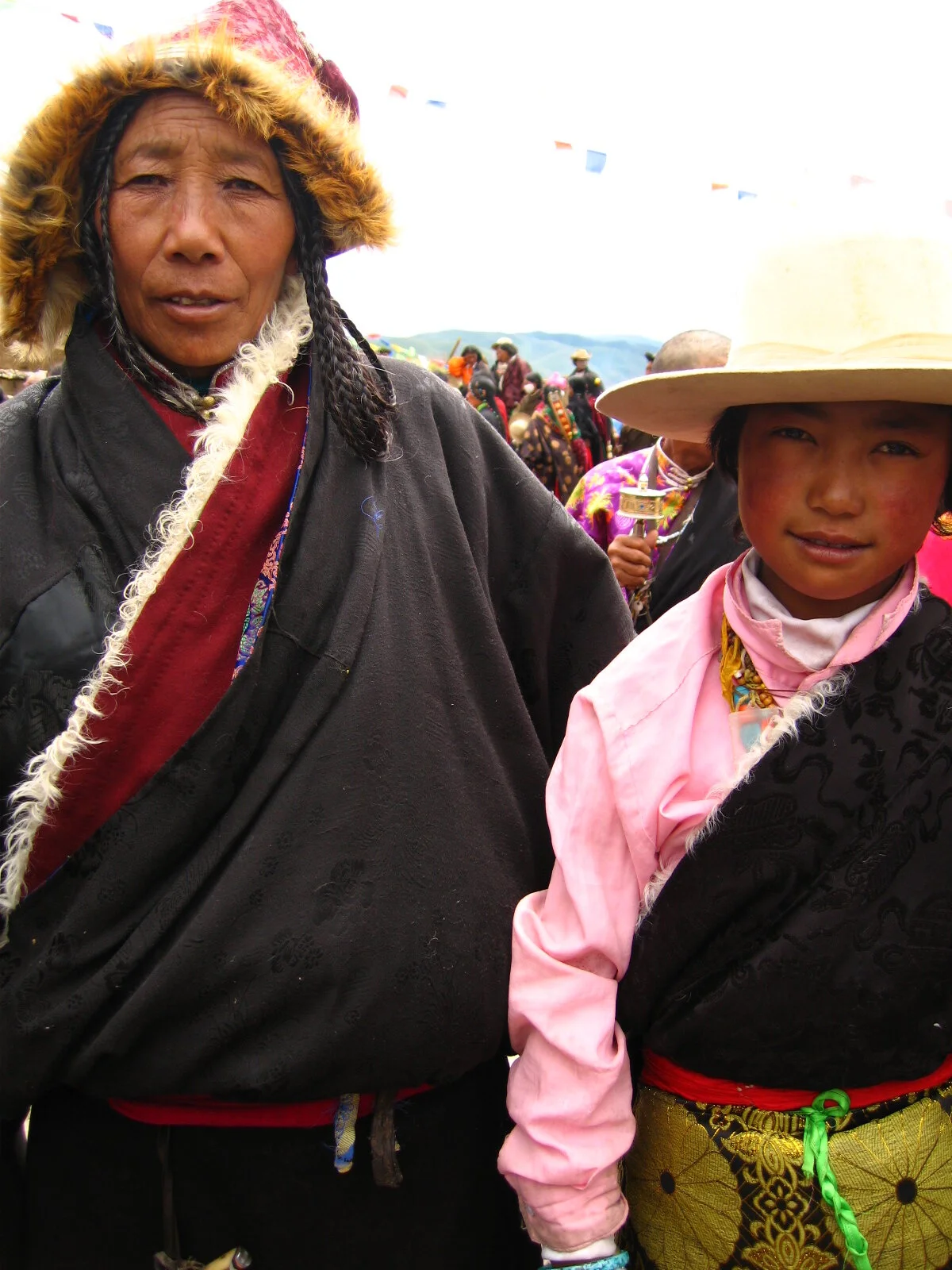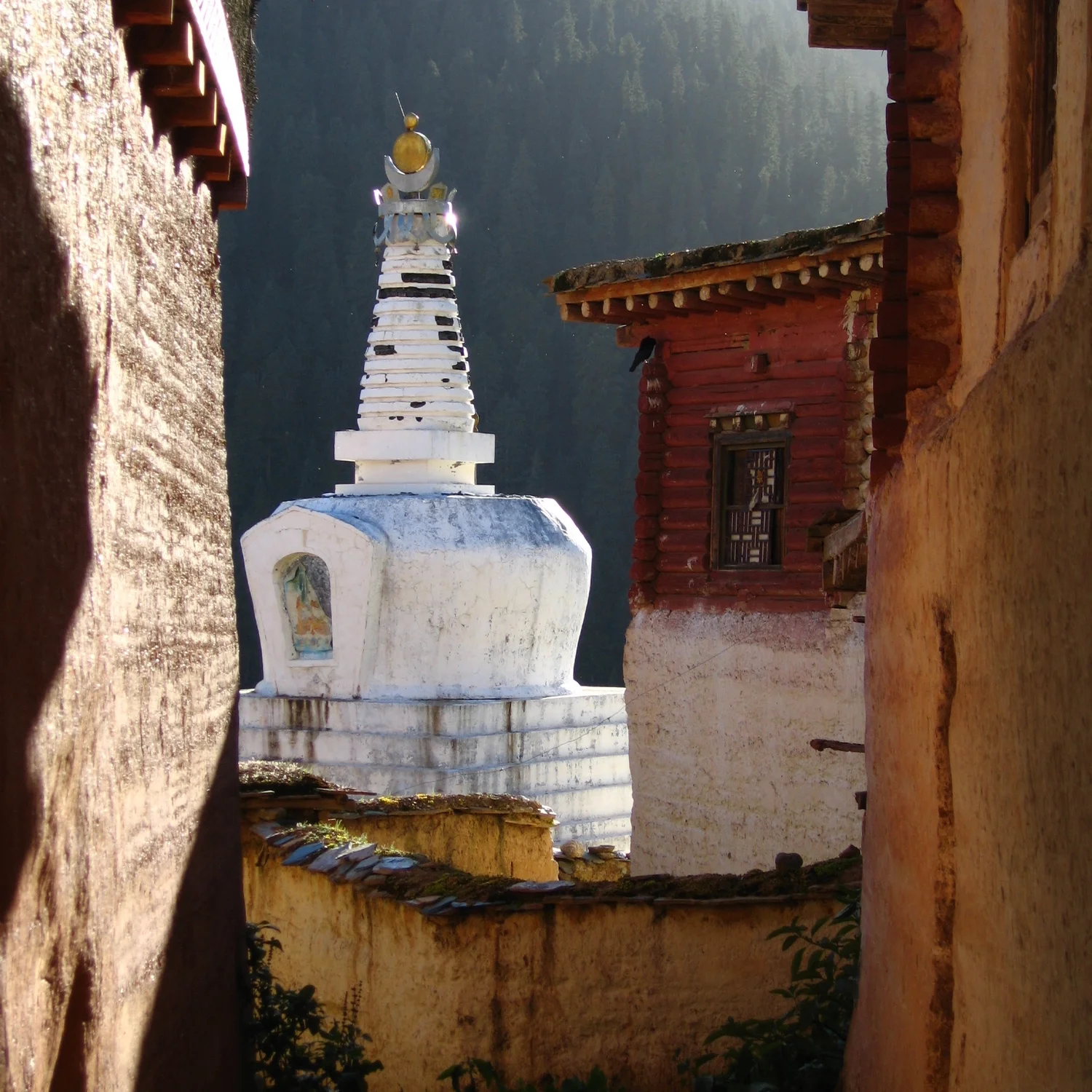The Sacrifice Pole Grab Festival
by Chris Pady
I balance perilously on my teammate's shoulders, wondering what to do next. The crowd below me grows impatient. I would love nothing more than to wipe the beads of nagging sweat scurrying down my face in mini rivers, but my hands are covered in greasy grime. The cacophony of blaring music and people screaming is so loud that I can barely hear myself think.
As I lift my head up to get back to the task at hand, my eyes meet directly with the mammoth TV lights. The glare is so strong that it’s like looking directly into the sun and I must avert my gaze upwards to the sky for relief. And what do I see? The moon, plump and full, smugly overseeing the proceedings. The entire predicament is so surreal that it begs the question: “How on Earth did I get here?”
The story of how I came to participate in this unique festival native to southern Taiwan is rather simple. This morning, I received a group text from my friend Siv which said, “Who wants to be part of the first ever foreign team to compete in the Sacrifice Pole Grab Festival? Leave at 2 PM from the Armory.”
The next thing I know, I’m on a chartered bus with a dozen other foreigner residents of Tainan heading southbound towards the town of Hengchun for the Chiang Ku Festival, in what will turn out to be my most bizarre and memorable Taiwanese experience.
We catch a glimpse of the tower rising menacingly high over the old city wall through the bus window as we pull in. While enthusiastic and optimistic discussions on tactics and strategy had dominated the conversation during the two hour bus ride, the reality of how tall the tower is lowers our confidence somewhat.
The tower consists of four massive bamboo poles, each 13 metres high and caked thick with gooey beef tallow, leading up to a platform at the top. The Chinese characters for north, south, east, and west are painted above each pole to distinguish the teams. On the top platform stands a small tree with a dead chicken strung to a branch. The first team to reach the top and claim the dead poultry wins a handsome sum!
A man in his sixties, with the distinctive short and stocky male Taiwanese frame, strikes up a conversation with me. His whole being exudes health, and he appears in better shape than most men in their twenties.
His name is Mr. Su. He speaks exceptional English, having lived in both the U.S. and England. “My English is at a very high level”, he says repeatedly throughout the night, in case I would dare think otherwise. His accent, however, has remained quite strong, which I assume is what prompted him to pick up the quirky habit of frequently spelling out words. He says things like, “This event is phenomenal. P-H-E-N-O-M-E-N-A-L. "
I ask him about the Chiang Ku, or the Sacrifice Pole Grab, as it is so eloquently translated. “Oh yes, I did it many years ago. Too much glease! G-R-E-A-S-E”, he says, laughing and shaking his head wildly.
He takes the opportunity to give me the story behind the tradition that dates back to the Qing dynasty. “The poor people from the county were getting too good at climbing the city walls. They steal from the rich. So, the rich people make the competition and invite the villages from all the four directions to climb the gleasy pole. The fastest team get lots of money and rice for their village. Better, the village also receive the good luck from the gods.”
Our team is ushered over to the tower for some preliminary explanations on rules and regulations before the climb. They provide us with a bag of green and blue rags - the green ones for degreasing and the blue ones are for making the footholds. They also provide a lightning fast demo – in incomprehensible English – of how to tie the rags into knots.
We have plenty of questions that remain unanswered because before we know it, it’s show time! Mr. Su, who has clearly taken a liking to me, stands in our corner with hands clasped in prayer, yelling, “I give you suppo, S-U-P-P-O-R-T."
A string of firecrackers is lit. At the final pop, all four teams rush out to commence the degreasing process.
I clamber onto my teammate's shoulders with the grace of an ogre. I receive a loud roar from the supporters in our corner as I remove the first of many thick slabs of grease with the cloth, flinging them away to rain down onto the ground below. It feels like I've just stuck my hand in a jar full of vaseline. I frantically repeat the process with a sense of urgency, egged on by the bing lang (beetle nut), the insanely loud techno music and the frenetic atmosphere.
When I glance over to see the other teams' progress, I'm shocked. One team has already scaled up several feet. For the first time, but surely not the last, it occurs to me that we have absolutely no chance of winning this competition. I do my best for a few more minutes before throwing in the rag, so to speak.
I find the spectacle much more enjoyable as a casual observer. The excitement reaches its pinnacle when the winning team’s expert climber, bare chest covered in grease and glistening from sweat in the lights, nimbly maneuvers his way onto the platform to claim first place.
Using a rag to wipe off some of the excess lard glued to my forehead, I turn to Mr Su, who is still by my side, and tell him that out of all of the crazy things I’ve seen and done in Taiwan, this one takes the cake, “C-A-K-E."
Chris Pady spent many years traveling, writing and teaching in Asia. He firmly believes that his travel experiences have transformed him into a better person, and he plans to instill this philosophy in his young children. He now resides in Vancouver and can be reached at chris.pady@gmail.com.






